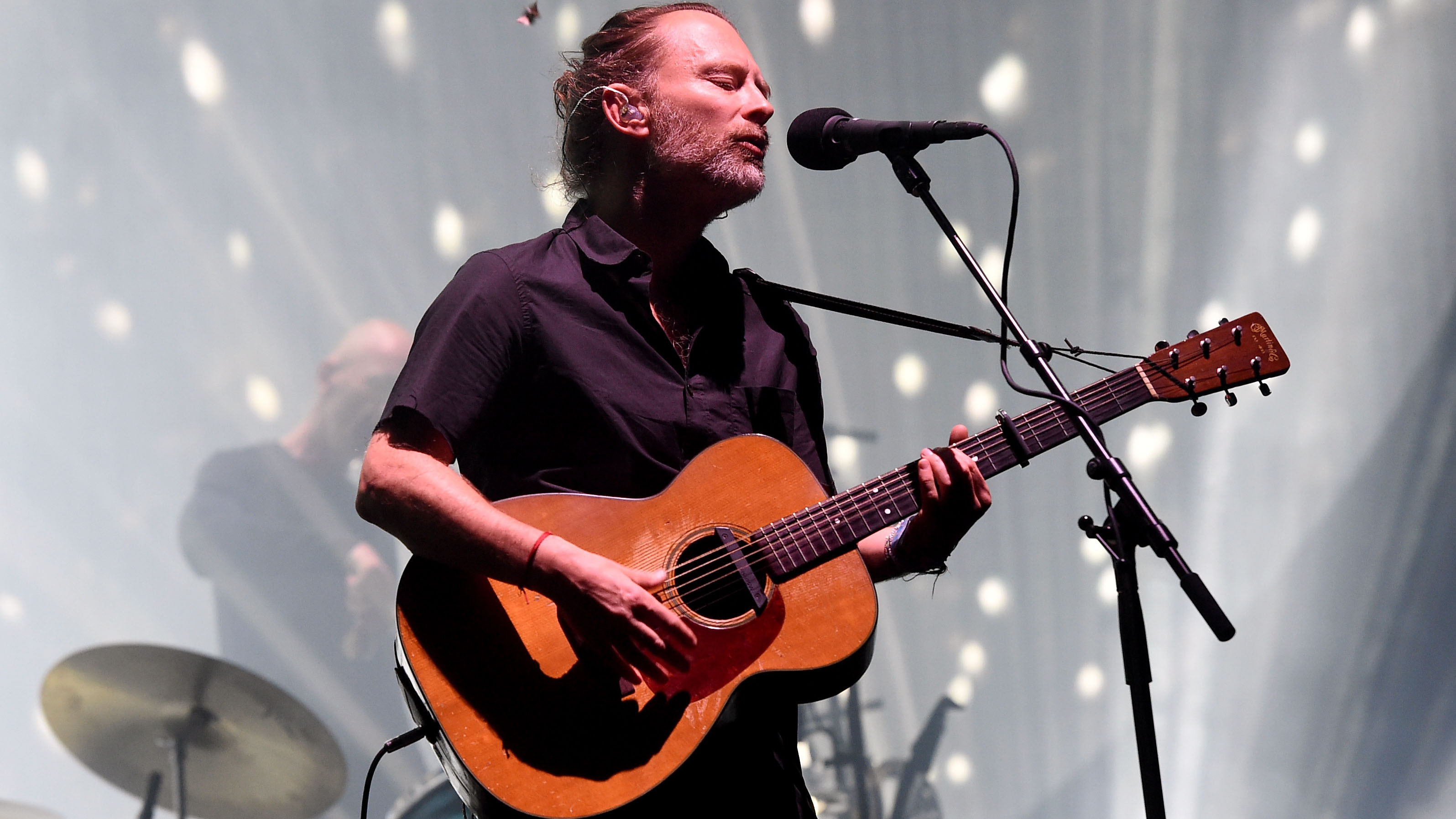“The unlicensed use of creative works for training generative AI is a major, unjust threat to the livelihoods of the people behind those works, and must not be permitted": Thom Yorke adds his support to a warning on the dangers of AI
Yorke joins ABBA's Björn Ulvaeus and thousands of other creatives in decrying the use of artists' work for AI models

Considered one of the music industry's most innovative figures, and a frequent imaginer of soulless, computer-dominated futures, Radiohead and The Smile's Thom Yorke today added his signature to a collective statement from the creative industries, levelled at AI companies. It asks them - in no uncertain terms - for them to stop training their models on their copyrighted work.
The statement, also signed by ABBA's Björn Ulvaeus, composer Max Richter and renowned actor Julianne Moore among 11,500 others reads as follows:
“The unlicensed use of creative works for training generative AI is a major, unjust threat to the livelihoods of the people behind those works, and must not be permitted.”
The argument - that AI companies habitually train their generative AI models on copyrighted and unlicensed work has been in the news a fair amount recently, and is one of the key battlegrounds where creatives hold firm.
They point to their moral right over that of the companies training their algorithm to blend their work into its learning patterns, reproducing approximations, or variations of work cribbing from this huge archive of (unlicensed) source material.
This letter was organised by Ed Newton Rex, who set-up the non-profit 'Fairly Trained' after resigning from his role at the company Stability AI last year. That move came following what he considered to be questionable data practices.
This new certification platform allows generative AI companies to fairly train their models on selected work, and makes sure that any and all training practices respect the rights of the artists.
Newton Rex said; “There are three key resources that generative AI companies need to build AI models: people, computers, and data. They spend vast sums on the first two - sometimes a million dollars per engineer, and up to a billion dollars per model. But they expect to take the third - training data - for free."
He continued by saying, "when AI companies call this ‘training data’, they dehumanise it. What we’re talking about is people’s work - their writing, their art, their music."
While some point to the UK government's proposed 'opt-out' scheme as a way around it (i.e. everything is fair game, unless the artists makes a point of saying otherwise), Ed insists that this is a further insult to artists and creators.
Want all the hottest music and gear news, reviews, deals, features and more, direct to your inbox? Sign up here.
"Even the most well-run opt-out schemes get missed by most people who have the chance to opt out. You never hear about it, you miss the email. It’s totally unfair to put the burden of opting out of AI training on the creator whose work is being trained on," he said.
Back in 1997, Radiohead's OK Computer envisioned a dystopia of mundanity, with technology supplanting humanity and colour with petty bureaucracy and facsimiles of emotion. Now, in 2024, are we on the cusp of a world not a million miles from the one imagined on that classic record?
Regardless of your view on that bigger topic, the fundamental point being made today is that artists and creatives need to be paid for the use of their work, especially when that forms part of the building the content-creating mechanisms of tomorrow.



I'm Andy, the Music-Making Ed here at MusicRadar. My work explores both the inner-workings of how music is made, and frequently digs into the history and development of popular music.
Previously the editor of Computer Music, my career has included editing MusicTech magazine and website and writing about music-making and listening for titles such as NME, Classic Pop, Audio Media International, Guitar.com and Uncut.
When I'm not writing about music, I'm making it. I release tracks under the name ALP.
